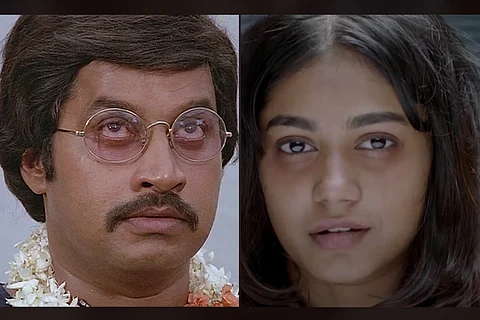

Ever since the making of the first Kannada film Sati Sulochana in 1934, Sandalwood has come a long way with recent hits like KGF receiving global recognition. While attempts have been made to explore themes like mental health, the films usually leave the audiences disappointed with their caricature-like portrayal of the same. Even though landmark films have involved psychiatrists in producing and directing the movies, and contributing towards the plot, the films do not bear the desired outcome.
Cinema has power over those who consume it and can influence people’s attitudes pertaining to subjects like mental health. Kannada cinema has produced an array of movies depicting conditions ranging from psychosis to personality disorders. Yet, these films have consistently let down the audiences with their often stigmatised and vague description of mental health concerns.
Manasa Sarovara, made in 1982, was the first film that brushed upon the theme of mental health in Kannada cinema. The film has a doctor who helps a young woman labelled as “insane” overcome her trauma, and promptly fall for her. He then goes “insane” over the close proximity between his nephew and the young woman.
The film has actor Narayan Swamy, known by his stage name Srinath, essaying the character of the psychiatrist which is very stereotypical in nature. The conventional portrayal of mental health is made worse with Padmavasanthi’s performance of an “insane” woman.
After that, films like Sharapanjara, Tarka, Manasaare, Huchcha (Kannada remake of 1999 Tamil film Sethu) and Bhinna have attempted to explore the themes of mental health. Except for Tarka, a parallel film starring Shankar Nag, portrayals of mental illnesses in these films border on either the superstitious treatment or display insensitivity towards the issue.
Huchcha, for instance, follows the story of a college rowdy essayed by Sudeep who is admitted in a ‘swamiji ashram’ after he's attacked by goons and suffers a brain injury. Various unscientific treatments are carried out on him and several other patients admitted there. This banal portrayal elucidates how people view mental illness as a religious curse and visit exorcists or other cult leaders, believing they have the cure for their ailing loved one.
Like its predecessors, the characterisation of Sachidananda (Sudeep) when he loses his memory is quite unrealistic which takes away the credibility of the film. It further creates a false narrative in the minds of people, stigmatising those facing mental health issues.
Manasaare by Yograj Bhat makes an attempt to highlight society’s hypocrisy towards the classification of behaviours, and, by extension, categorising it into 'normal' and 'abnormal'; but the film was not successful in creating the desired impact and is solely remembered as a family entertainer.
The industry has creators like Rakshit Shetty, Adarsh E Eshwarappa (director of Bhinna) who are daring to push their limits, but how successful have they been in their venture?
The element of mental health in Bhinna eventually went down the same rabbit hole of stereotypical portrayal and insensitivity.
The female protagonist Kaveri, an aspiring actor, gets so immersed in the plot of the film she is offered that the lines between reality and fiction get blurred for her, prompting hallucinations. She is often referred to as a ‘mentally unstable’ woman by her husband in the film and is ridiculed. Even when she lands up in a psychiatric facility, she is met with a doctor who lacks empathy and is seen forcing her to speak involuntarily or face dire consequences.
While Hollywood has managed to produce films like Eternal Sunshine of the Spotless Mind that come close to exploring the intricacy of how major events in life affect a person's psychological health, Hindi films like Kaasav, Dear Zindagi, Karthik Calling Karthik among others have sensitively explored depression, schizophrenia, suicide, loneliness, care and treatment. The films do not have a banal portrayal of how a person is 'abnormal' or 'normal'; nor do they have a stereotypical portrayal of treatment, therapy and mental health professionals.
At a time when other film industries are trying to create more socially responsible films that explore themes of mental health with a dash of commercial no-brainers, Sandalwood is still pushing tasteless family dramas replete with unnecessary punchlines, stereotypes and unrealistic action scenes. The creators, actors and those making films have been clinging on to the same formula for decades now. It’s about time they shed their inhibitions to explore themes like mental health with sensitivity, and this will also contribute towards creating awareness among the audiences.